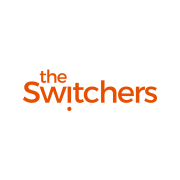

Subscribe to SCP News
Sustainable Chemical Management
One of the main initiatives that the Regional Activity Centre for Cleaner Production (CP/RAC) carried out during the biennium 2008 - 2009 and the previous years within the framework of the Action Plan for the Mediterranean (MAP) was the promotion of Cleaner production and pollution prevention under the LBS Protocol. The Centre participated in the major programs addressing pollution from land, especially in the Strategic Action Program.
The Stockholm Convention on Persistent Organic Pollutants (POP) was adopted in 2001. It was originated thanks to the goal set by the UN to save the world from POP by restricting and eliminating their production, use, release and storage. Four years later, in 2006, the Strategic Approach to International Chemicals Management (SAICM) was adopted in Dubai. Its executive summary establishes chemicals as a priority, in the same way as Annex I of the Protocol for the Protection of the Mediterranean Sea against pollution from land based sources.
Thus, in the global context for sustainable development, the Stockholm Convention on Persistent Organic Pollutants and the Strategic Approach for International Management of Chemicals (SAICM) are the most recent international agreements through which countries are joining forces to make sure that chemicals are produced and used in ways that minimise adverse effects on the environment and human health significantly.
The CP/RAC is aware of the fact that, in order to contribute to the reduction and rational management of chemicals in the Mediterranean countries, it must avoid duplicating efforts with international agreements and conversely exploit existing synergies between them and the LBS Protocol. For this reason, the Centre adjusted its activities to the reduction and rational management of chemicals to the priorities and needs that are common to the LBS Protocol, the Stockholm Convention and the SAICM.
During 2009, the CP/RAC developed its activities in line with these international agreements that establish such globally agreed priorities to combat land-based pollution. In this sense, it is particularly remarkable recognition of the Centre as "Regional Centre for the Stockholm Convention", achieved in May 2009.














